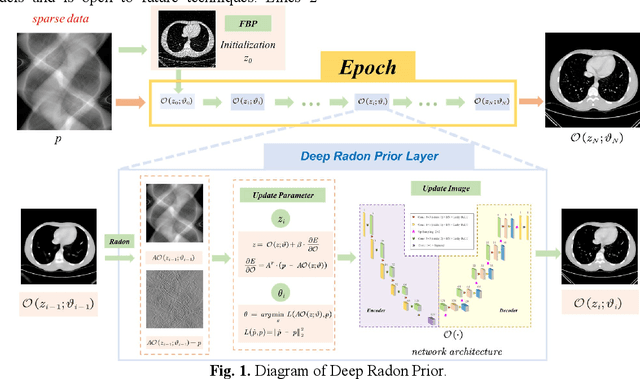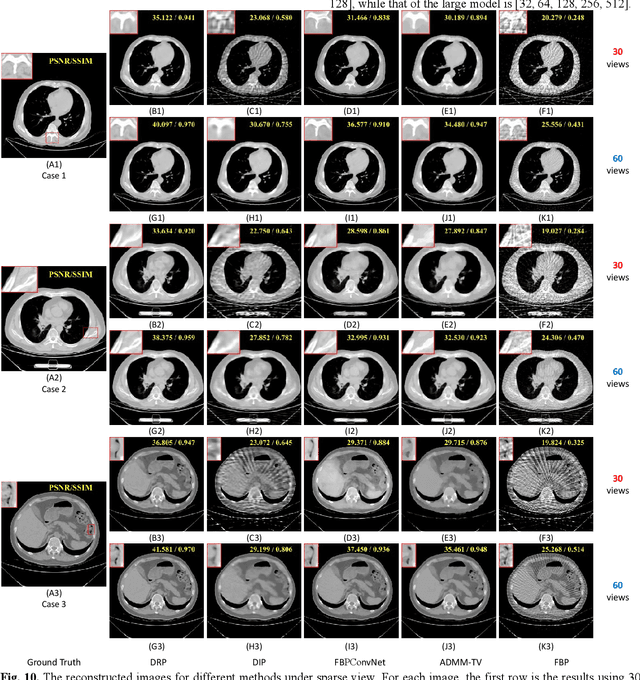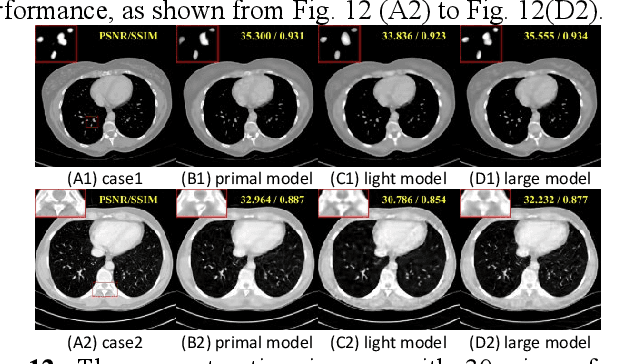Peng Cong
Deep Radon Prior: A Fully Unsupervised Framework for Sparse-View CT Reconstruction
Dec 30, 2023



Abstract:Although sparse-view computed tomography (CT) has significantly reduced radiation dose, it also introduces severe artifacts which degrade the image quality. In recent years, deep learning-based methods for inverse problems have made remarkable progress and have become increasingly popular in CT reconstruction. However, most of these methods suffer several limitations: dependence on high-quality training data, weak interpretability, etc. In this study, we propose a fully unsupervised framework called Deep Radon Prior (DRP), inspired by Deep Image Prior (DIP), to address the aforementioned limitations. DRP introduces a neural network as an implicit prior into the iterative method, thereby realizing cross-domain gradient feedback. During the reconstruction process, the neural network is progressively optimized in multiple stages to narrow the solution space in radon domain for the under-constrained imaging protocol, and the convergence of the proposed method has been discussed in this work. Compared with the popular pre-trained method, the proposed framework requires no dataset and exhibits superior interpretability and generalization ability. The experimental results demonstrate that the proposed method can generate detailed images while effectively suppressing image artifacts.Meanwhile, DRP achieves comparable or better performance than the supervised methods.
 Add to Chrome
Add to Chrome Add to Firefox
Add to Firefox Add to Edge
Add to Edge